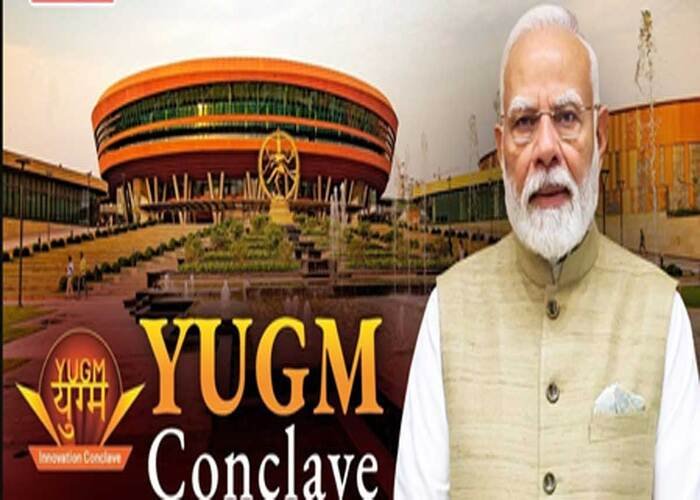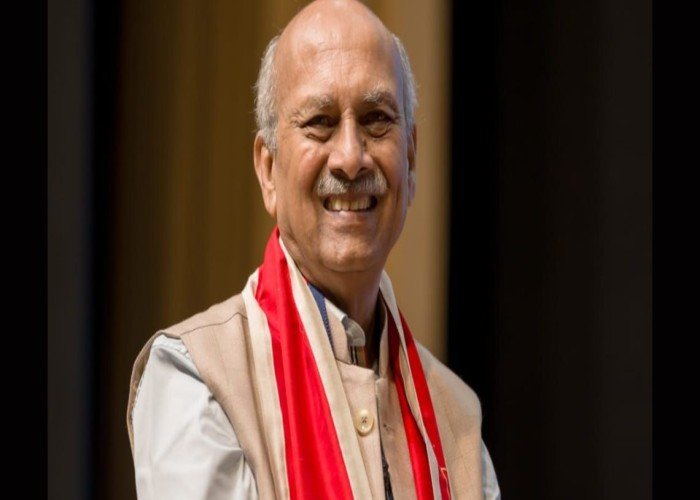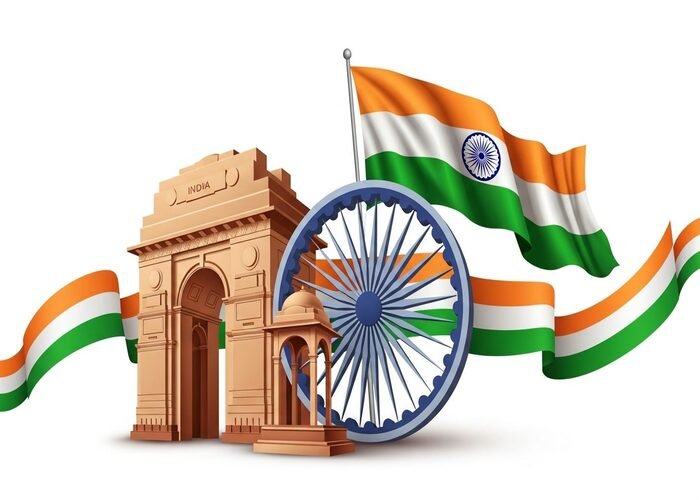Highlighting the crucial role youth will play in shaping the country’s future, Prime Minister Narendra Modi said the government is committed to transforming education and research systems to match the aspirations of the country’s younger generation.
Speaking at the YUGM Innovation Conclave, he addressed a packed audience of students, researchers, educationists, and government officials. He said India’s innovation ecosystem must be led by its youth.
“We are modernising the country’s education system and aligning it with global standards. Every effort is being made to develop new skills among the youth,” he said.
Major Announcements
During the conclave, a series of major initiatives worth over ₹1,400 crore were announced in collaboration with the ‘Wadhwani Foundation’, aimed at strengthening India’s research and innovation infrastructure with a focus on youth. These projects include Wadhwani School of AI and Intelligent Systems at IIT Kanpur – Rs 500 crore investment to establish a state-of-the-art facility with B.Tech, M.Tech, and PhD programs. Fifty external hubs will focus on areas like AI, cybersecurity, and robotics, Wadhwani Hub for Biosciences and HealthTech at IIT Bombay – Rs 300 crore to develop a medical tech research centre involving over 500 researchers and 40 faculty members and National Co-Funding Framework with the ANRF – Rs 200 crore for late-stage translational research in key fields such as quantum computing, AI, and health tech.
PM Modi also reaffirmed the government’s investment in the India-AI Mission, a program designed to develop high-quality datasets, build research capacity, and promote AI-based applications across sectors such as healthcare, agriculture, and smart mobility.
Youth-Focused Reforms in Education
PM Modi said the New Education Policy (NEP) has created a flexible and modern education environment. The National Curriculum Framework, new textbooks for Classes 1 to 7, and platforms like PM e-Vidya and DIKSHA were highlighted as steps that make education more inclusive and future-ready.
A significant development, the “One Nation, One Subscription” scheme, now allows students and researchers free access to top global research journals. Modi also pointed to the implementation of the National Credit Framework, which lets students pursue diverse academic interests simultaneously.
He underlined the expansion of Atal Tinkering Labs, with 10,000 labs already operational in schools and 50,000 more approved in the Union Budget 2025–26. These labs provide young students early exposure to innovation and problem-solving.
Student-led research and innovation
Citing specific examples, PM Modi said campuses across India have become centers of innovation led by young researchers. These achievements are- The world’s longest hyperloop test track at IIT Madras, Development of an indigenous MRI machine, Breakthroughs in nanotechnology at IISc Bangalore and Advancements in Brain-on-a-chip technology.
He also highlighted a sharp increase in patent filings—from 40,000 in 2014 to over 80,000 in 2025—reflecting the growing contribution of India’s youth to global innovation.
More than 6,000 Research & Development Cells have been established in higher education institutions. A Rs 50,000 crore- National Research Foundation is also being set up to promote high-impact research. Thirteen new Research and Innovation Parks will help young entrepreneurs scale from lab to market.
New Meditech Courses and Global Collaborations
To strengthen interdisciplinary education, PM Modi announced that new Meditech courses will be introduced through partnerships between AIIMS and IITs, aiming to merge medical science and technology.
He further noted India’s growing presence in global higher education rankings. Indian universities featured in the QS World Rankings have increased from 9 in 2014 to 46 in 2025. Over 90 universities are now listed in the Higher Education Impact Rankings.
India’s academic footprint is also expanding globally, with IIT Delhi in Abu Dhabi, IIT Madras in Tanzania, and a soon-to-be-launched IIM Ahmedabad in Dubai. Simultaneously, foreign institutions are opening campuses in India, creating more opportunities for Indian students.
Union Minister of Education Dharmendra Pradhan said the government is focused on developing the entire idea-to-product chain within the country to promote self-reliance in innovation.
Union Minister for Science & Technology Dr. Jitendra Singh Jitendra Singh remarked that India is emerging as a global leader in research and should now aim to become a trendsetter rather than a follower.
The YUGM Innovation Conclave marked a strategic push toward building an innovation-led economy powered by the creativity, talent, and determination of India’s youth. With bold policy support, educational reforms, and major investments in research infrastructure, the government aims to equip the next generation to lead India into the future.











